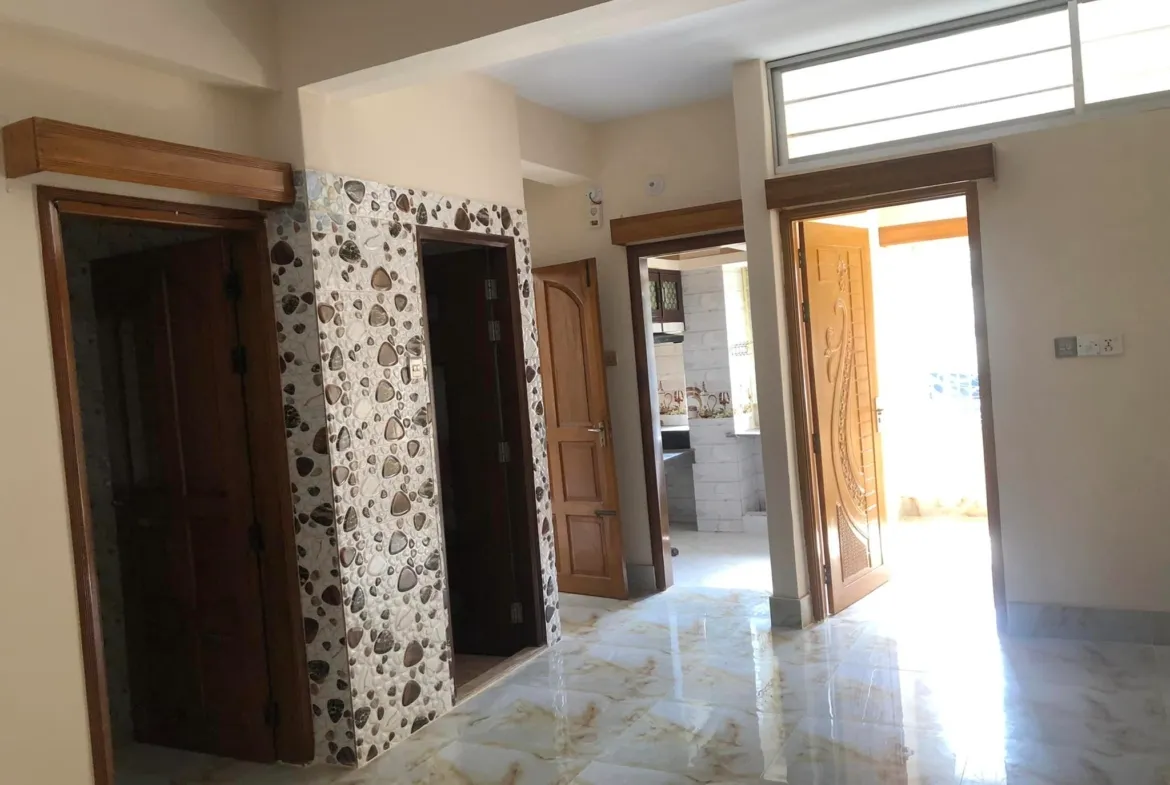Renting an apartment in Dhaka, Bangladesh as a foreigner can be a relatively straightforward process, but there are a few key considerations that will ensure you navigate the market smoothly. Whether you’re planning to stay in Dhaka for work, study, or leisure, understanding the local rental procedures, typical lease conditions, and the market nuances can help you secure a comfortable living space. This guide will walk you through the essential steps and tips for renting an apartment in Bangladesh as a foreigner.
1. Understand the Rental Market in Bangladesh
The rental market in Bangladesh, particularly in urban areas like Dhaka, is diverse, offering a range of options for both locals and expatriates. Foreigners usually prefer to rent furnished apartments because they come with essential furniture and appliances, making the move much easier.
- Price Range: The cost of renting an apartment can vary greatly depending on the location, size, and amenities. Dhaka is the most expensive city, especially in areas popular among expatriates such as Gulshan, Banani, and Baridhara. For example, a furnished apartment for rent in Dhaka can range from BDT 30,000 to over BDT 100,000 per month.
- Furnished Apartments: Expats tend to prefer furnished apartments to avoid the hassle of buying and setting up furniture. Many apartments come fully equipped with essentials like air conditioning, a washing machine, a refrigerator, and beds. It’s important to check that all the appliances and furniture are in good condition before signing the lease.
- Location Considerations: Proximity to work, schools, shops, and other amenities plays a significant role in the rental decision. Popular neighborhoods for foreigners in Dhaka include Gulshan, Banani, Dhanmondi, and Baridhara, which are known for their security, international facilities, and well-maintained housing options.
2. Work with a Local Real Estate Agent
As a foreigner, working with a local real estate agent can make the rental process much easier. Real estate agents in Bangladesh have local knowledge, understand the market, and can guide you through the process. Here’s why working with an agent is beneficial:
- Language Barrier: Most property listings are in Bengali, and many landlords prefer to communicate in Bengali. A local agent can help bridge the language gap, making it easier to negotiate and clarify any points with the landlord.
- Property Access: Agents often have access to a wider range of apartments, including those that are not listed on websites. They can offer personalized options based on your preferences and budget.
- Expert Negotiation: An agent can also help negotiate the lease terms, ensuring that you get a fair deal. They can discuss rent, security deposit, utilities, and lease length on your behalf, which can help avoid misunderstandings.
3. Visit the Apartments in Person
Once you’ve shortlisted potential apartments, it’s crucial to visit each one to ensure it meets your needs. Here’s what to look out for:
- Furnishings and Appliances: Check that the apartment comes with the expected furniture and appliances. Ensure that things like the refrigerator, air conditioning, washing machine, and other essential appliances are in good working condition. Take a detailed inventory of what’s included.
- Size and Layout: Make sure the apartment is spacious enough to accommodate your belongings. Check if the layout works for you, with enough room for everyday living.
- Building Condition: Examine the condition of the building and common areas (e.g., hallway, elevators, etc.). Look for any signs of wear and tear, leaks, or maintenance issues.
- Security: Ensure that the building has adequate security measures in place. This might include security guards, surveillance cameras, and secure entry systems. Foreigners often prefer buildings with additional security for peace of mind.
- Neighborhood: Take some time to explore the neighborhood around the apartment. Check if it’s close to public transportation, grocery stores, hospitals, or restaurants. This is important for your convenience and safety.
4. Understand Lease Terms and Conditions
Before signing any agreement, ensure that you fully understand the lease terms. Key points to check include:
- Rent Amount: The rent for an apartment in Dhaka can vary depending on the location and size. Confirm whether utilities such as water, electricity, and internet are included in the rent or whether you need to pay them separately.
- Security Deposit: Landlords typically require a security deposit (often one or two months’ rent), which is refundable at the end of your lease, provided there is no damage to the property.
- Lease Duration: Leases in Bangladesh are generally signed for one year. However, if you’re looking for a shorter stay, you may be able to negotiate more flexible terms with the landlord.
- Responsibility for Maintenance: Clarify who is responsible for repairs and maintenance. Ensure that the landlord takes care of any major repairs, while you may be responsible for minor fixes during your stay.
- Termination Clauses: Ensure that the lease outlines the conditions under which you or the landlord can terminate the agreement early. It’s important to know what penalties or procedures apply if you need to leave the apartment before the end of your lease.
5. Review the Lease Agreement
Once you’ve finalized the apartment and negotiated the terms, carefully review the lease agreement. Pay attention to:
- Rent Payment Details: The agreement should clearly mention how and when rent is to be paid. Most landlords prefer advance payments, so you may need to pay rent for several months upfront.
- Deposit Refund: Ensure that the conditions for refunding the security deposit are clearly outlined. The deposit should be refunded when you vacate the apartment, provided you haven’t caused any damage.
- Early Termination: Check the clauses about early termination. Some leases may include penalties if you leave the apartment before the agreed-upon period.
- House Rules: Read through any rules or regulations for the building, such as restrictions on guests, pets, or noise. Understanding these rules will help you avoid any issues during your stay.
6. Sign the Lease and Make Payment
Once you’re satisfied with the terms of the lease agreement, you can proceed to sign it. Make sure you have a copy of the signed agreement for your records. The payment will typically include the first month’s rent and security deposit. Ensure the payment is made through a secure and traceable method.
7. Move In and Settle In
After signing the lease and making the payment, it’s time to move in. Take time to inspect the apartment for any damages, and report them to the landlord immediately. This ensures that you won’t be held responsible for pre-existing damage when you vacate the apartment.
- Set Up Utilities: If utilities are not included in the rent, you’ll need to set them up yourself. This includes water, electricity, and internet. Be sure to check which utility providers are available in the area.
- Adjust to the Local Environment: Living in a new country can be a cultural shift, so take some time to familiarize yourself with local customs, transport options, and emergency services.
Conclusion
Renting an apartment in Bangladesh as a foreigner is manageable as long as you do your homework and follow the steps outlined in this guide. By understanding the rental market, working with a local agent, and carefully reviewing the lease terms, you can secure a furnished apartment that meets your needs. Dhaka offers a wide range of rental options, and with the right preparation, you’ll be able to settle into a comfortable home that allows you to enjoy your time in Bangladesh. Happy renting!
For the best listings and advice on finding furnished apartments for rent in Dhaka, check out real estate platforms like Rents Corporation, Bproperty, or consult with an experienced agent.















